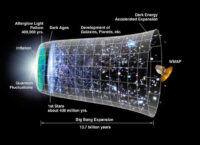Each year terribly well-educated and insightful people make predictions about the future. In some cases they are right but mostly they are wrong. Rarely, however, do we go back in time to review just how accurate our prognosticators have been. We are so caught up in “worrying about tomorrow” examining yesterday’s predictions is too boring.
Forward-looking inclinations aside, I recently decided to reread R. Buckminster Fuller’s 1964 book “Utopia or Oblivion,” a compilation of his speeches and essays. For those of you who are not familiar with “Bucky” Fuller, he was one of the 20th century’s most innovative thinkers and inventors, famous for his invention of the geodesic dome. Fuller’s observations were bred of a determined lifetime effort towards developing a comprehensive view of the workings of the world, both natural and human-made.
In his book, Fuller’s thoughts and predictions, made as the first geosynchronous Telstar communication satellite system was placed in orbit, accurately anticipate the subsequent globalization of culture, technology and economics. While he did not specifically mention the Internet, he clearly saw that the computer-driven communications revolution would transform the world and obliterate many of the long-standing boundaries separating nations and peoples.
Fuller considered political systems all but irrelevant to the success of the human species. In fact, he viewed the existing world-wide political systems as obsolete, and actually standing in the way of progress. This is not to say he was an anarchist – anything but – however his view was that unless our allegiance to a philosophy based upon “not enough to go around” and the political-military-war-making systems that go hand-in-hand with such thinking are cast aside, our chances of survival are low.
Based upon meticulous calculations and his documentation of the acceleration of technological advances, Fuller advocated that human-kind has the capacity to fully provide for all residents of “Spaceship Earth” if only we could recognize it. From food to shelter, communication to energy – using sunlight, wind and wave energy, education to transportation, Fuller felt that within 50 years, petty politics aside, advances in technology meant there would be “more than enough to go around.” World-wide humanity could fully enjoy the wealth of its metaphysical understanding and knowledge, and enter a new age unencumbered by fears of ignorance, poverty and starvation. Would global warming, I wonder, be the problem it is today had the world invested heavily in solar and alternative energy production as Bucky suggested 50 years ago?
Alas, despite his brilliance, Fuller greatly underestimated the enormous power of greed. His thinking failed to anticipate the ways in which the “haves” would continue to amass wealth and power at the expense of the “have-nots” and how fear-based “negative societal reflexing” would be actively propagated for decades. While the World Wide Web has indeed spread instantaneous networked communication across the globe, the voracious consumer-credit profit-driven world-economic system has overwhelmed the potential for free universal education, social enrichment, economic equity and clean renewable energy.
Fuller believed that “truth will set us free.” In this respect, he was naïve. Just as many in positions of power and influence continue to deny the reality of global warming due to human activity, so have we wasted 50 years stimulating ignorance, complacency and greed. As for making a choice between Utopia or Oblivion, sadly, we are almost out of time.




